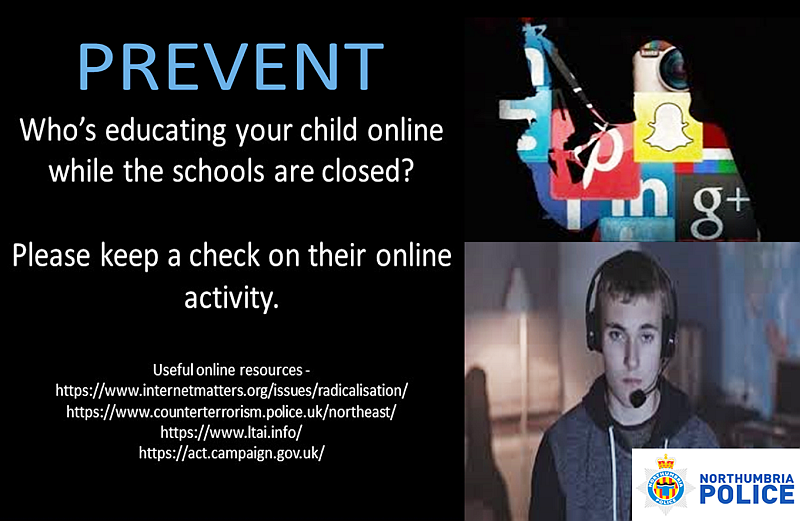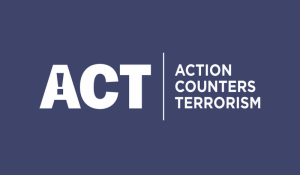We all use technology in our everyday lives and it is vital that we are able to use it safely. In the event that we feel unsafe about something, we need to know what to do. The links below will help you refresh yourself, or to learn more about internet safety, and how to stay safe during these unprecedented times.
ACT Early is a new dedicated safeguarding website from the specialists at Counter Terrorism Policing. You can find out more in this news article.
The Online Safety lead at QEHS is Dave Todd, Assistant Headteacher. For our full Online Safety Policy and related policies, such as Anti-Bullying and the Student ICT Acceptable Use Agreement, please see our Policies page.
Online Tutors: Safeguarding
If you are employing an online tutor for your child, please read the following guidance leaflet for useful safeguarding information: Online Tutors Safeguarding (external URL)
Resources from Northumbria Police
Please see below a digital leaflet designed specifically for parents, guardians, and family. Northumbria Police is using this to encourage the public to access information about Prevent via various pathways, including ACT EARLY (External URL).
Northumbria Police PREVENT team within Special Branch:
As you may be aware our children and young people are sadly vulnerable to being drawn into concerning activity of various descriptions through their online activity.

Child Exploitation and Online Protection (CEOP)
CEOP, part of the National Crime Agency, and Facebook have developed a new app that will make young people safer within Facebook: ‘ClickCEOP’, which links the user directly from their Facebook home page to help, advice and reporting facilities of the CEOP Centre.
Parents: http://www.thinkuknow.co.uk/parents/
Young People: http://www.thinkuknow.co.uk/
Teachers: http://www.thinkuknow.co.uk/teachers/
CEOP: http://www.ceop.gov.uk









